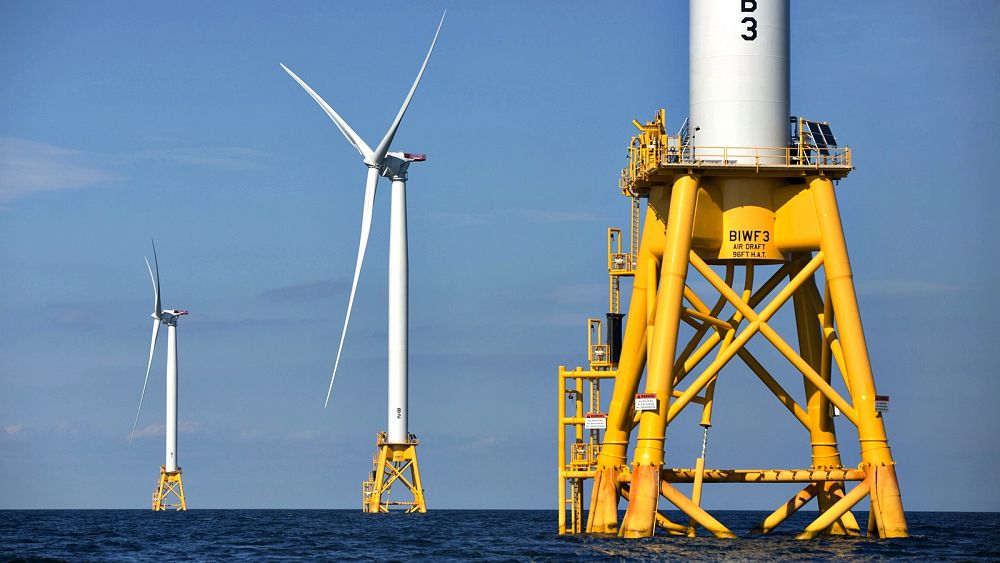
The Inflation Reduction Act has put Europe on edge.
The continent fears the law promoted by US President Joe Biden will spark an industrial exodus across the Atlantic Ocean, leaving factories and workers in the dust.
Among its provisions, the Inflation Reduction Act (IRA) earmarks up to $369 billion (over €341 billion) in tax credits, direct rebates and subsidies to help companies invest and produce green technology, including wind turbines, solar panels, heat pumps and electric vehicles.
But the generous aid, set to be doled out over the next ten years, will only be made available if these products are predominately processed and assembled in North America, a requirement the European Union has denounced as unfair and discriminatory.
«We want to compete on quality, that’s important, we do not want to compete on subsidies,» European Commission President Ursula von der Leyen has said.
Since the IRA entered into force, several international companies have announced new investment plans in the US, including Korean company Hanwha Qcellsa, which this month said it would spend $2.5 billion to manufacture components for solar panels in Georgia.
Will EU businesses follow suit and move abroad?
In Denmark, a global leader in green energy, the prospect is tangible – but not yet inevitable.
«Seen from the green transition perspective in the US, the (IRA) is a very positive initiative,» Jan Hylleberg, deputy CEO at Green Power Denmark, an association that represents 1,500 Danish companies working across the green energy value chain, told Euronews.
«Of course, there is a risk of reallocation of investments to the US,» he added. «There’s no doubt that the fear is real, and especially if we don’t act. Then, the investments will flow to the US.»
For Hylleberg, the IRA is a «wake-up call» for Europe that demands a response based on a broad «set of tools.»
The European Commission is expected to release more detailed countermeasures in the coming weeks, such as new rules to fast-track state aid – something that counties like Denmark, Sweden, the Netherlands and Ireland worry will trigger a harmful subsidy race and unfair competition in the single market.
«European green industry is not a given thing. We have to care about it,» Hylleberg said. «We have to ensure that, if we want investments, if we want employment in the green renewable industry in Europe, we have to care about it, we have to take new initiatives to ensure that we will have these investments.»
Denmark was a pioneer in clean energy and began investing heavily in the sector decades before its fellow EU member states. Today, the Nordic country hosts some of the world’s largest developers of wind turbines and offshore wind farms, such as Vestas and Ørsted, offering the bloc a considerable competitive edge.
Under the Inflation Reduction Act, the US intends to have 120,000 wind turbines operating by 2030, an objective to which Danish companies are poised to contribute.
But, as Hylleberg underlined, it is nascent technologies, such as green hydrogen, that are most at risk of being relocated because they have a small physical footprint, making the transfer easier.
«Renewable hydrogen is still quite a young industry, is still a quite young value chain, and therefore there, especially Europe, has to be very focussed on ensuring that not all the available investments right now will move to the US because we in Europe need very new and strong incentives for the renewable hydrogen supply chain and infrastructure to establish itself in Europe,» Hylleberg said.
«Basically, we need to have a new European industrial policy. This is also part of the answer to the war in Ukraine. It’s not just a question about the Inflation Reduction Act and the US.»
